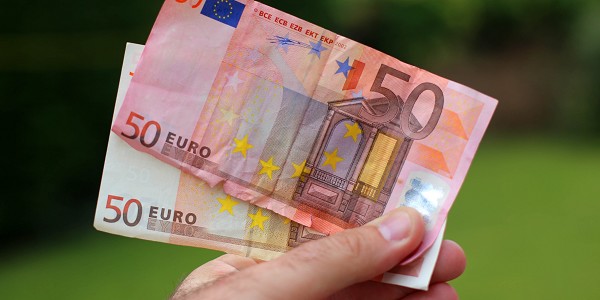Almost 11 million euro worth of laundered, burned, torn or stained bank notes were replaced by banking chiefs this year.
But eagle-eyed note checkers in the Central Bank refused to cash out on 366 notes, the vast majority of which because less than half of the original note was handed in.
Although the regulator does not record data on why all notes were what it considers mutilated, they have rejected some euros because they were damaged by ink after a theft.
Others were not changed because they were intentionally ruined or there is a health risk in handling the money.
Excuses from people seeking new cash ranged from notes burning while being dried out in a microwave or others being destroyed after inadvertently going through a wash and spin cycle with the laundry.
The Central Bank said 10.9 million euro worth of what it classed as “mutilated notes” were reimbursed in 2015, around the same figure for the previous two years.
And experts in its currency division are reporting more ink-stained notes being handed in over recent years.
The Central Bank said there is an increase in the use of Intelligent Banknote Neutralisation Systems – the security device which renders notes useless with a stain when unauthorised access is attempted to a cash box.
Some 265 applications for stained notes were processed by the Central Bank this year.
But a spokeswoman said: “The majority of ink-stained banknotes are stained accidentally, due to malfunction or in testing and therefore do not come into circulation.”
“All lodgments of mutilated banknotes are verified and authenticated prior to the generation of a reimbursement payment.”